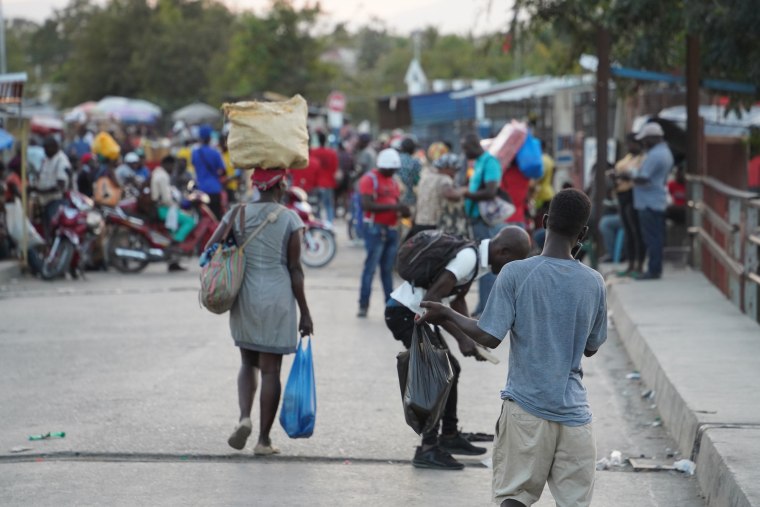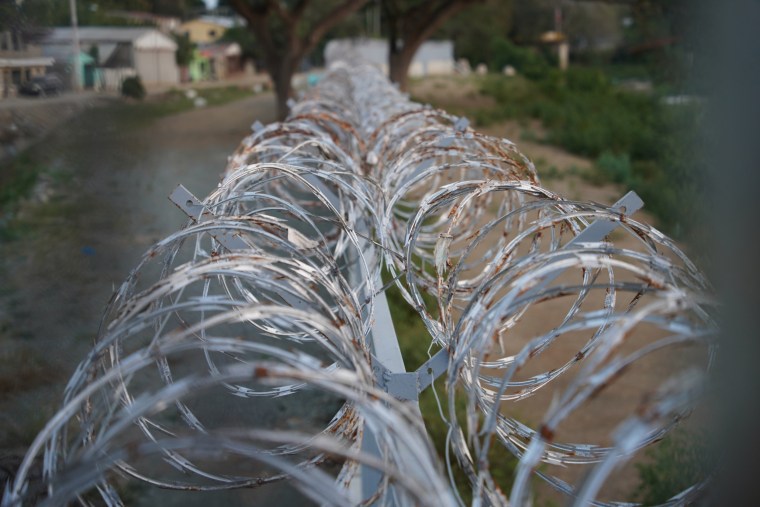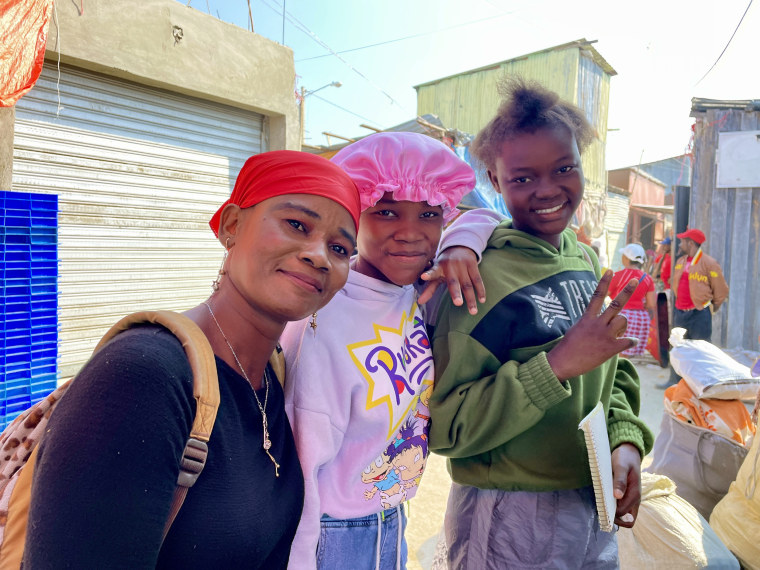Security strengthened as Haitian crossings increase at the Dominican Republic
DAJABÓN, Dominican Republic — As the crisis in Haiti spirals deeper into chaos, the neighboring Dominican Republic is bracing for more migrants arriving amid ongoing tensions between the two countries.
The border between Haiti and the Dominican Republic has been closed for days as violence in Haiti dramatically escalated following a mass prison break in Port-au-Prince. But on Thursday and Friday, Haitians were allowed into a farmer’s market in the border town of Dajabón, which has a population of 25,000 and is about 120 miles from the Haitian capital.
Under the watchful eye of border guards, hundreds of Haitians rushed into the market to buy whatever food they could carry with what little money they had, as temperatures exceeded 95 degrees. Men hurriedly pushed wheelbarrows full of corn, eggs and drinking water. Women carried buckets of supplies on their heads.
It was so crowded that on Friday one woman was badly injured when she fell off a bridge into the brush below. Bystanders said she lost her balance in the stampede to get food.

Meanwhile, a robust security presence is visible, with troops manning checkpoints and razor wire topping border fences. And each day, bus after bus is seen deporting Haitians who were in the Dominican Republic illegally.
There has long been friction between Haitians and Dominicans along this part of the border. The Dajabón River, also known as the Massacre River in reference to Spanish settlers who killed French buccaneers in the 1720s, divides the countries and has long been the source of a dispute that continues to this day.
The current violence in Haiti, where militias and armed groups have taken over the streets of the capital, is the culmination of a crisis that has been growing for more than a year. In response, Dominican President Luis Abinader has increased patrols along the border over concerns of a Haitian migrant influx. He is also building a 108 mile-long wall.
“Either we all fight together to save Haiti or we fight on our own to protect the Dominican Republic,” Abinader told the United Nations Security Council last month.

Across the border from Dajabón in Quanaminthe, Haiti, dozens of people gathered awaiting supplies. The largely rural area is far removed from the raging violence in Port-au-Prince. Instead, extreme hunger is the more pressing issue here. The United Nations estimates that nearly 1 million people in Haiti are on the brink of famine.
Elena Franck, 40, crossed into the Dominican Republic with two of her teenage children to sell shoes at the market and gather whatever food they could bring home. Her husband died three years ago from heart disease and her family was growing increasingly more desperate. Her 14- and 16-year-old girls skipped school, hoping to help her sell more sneakers at the Dajabón stand.
“We don’t have work,” Franck said. “We don’t have a president. We have nothing.”

Quality of life is notably better in the Dominican Republic, which relies on a robust tourism economy. The roots of this contrast wind through corruption and stretch back to French-controlled slavery in colonial-era Haiti.
White House National Security Communications adviser John Kirby said Thursday the U.S. was considering temporarily housing Haitian migrants at Guantanamo Bay, like it has done before. He added that the U.S. is not seeing a large increase of migrants from Haiti so far.
The president of Guyana, Mohamed Irfaan Ali, said Friday that a group of Caribbean nations, international partners and Haitian stakeholders, known as CARICOM, have reached an agreement for a political transition council. The agreement includes the resignation of Haitian Prime Minister Ariel Henry, who remains in Puerto Rico, as well as “a pact for a peaceful transition of power, continuity of governance, an action plan for near-term security and the road to free and fair elections,” according to a statement from the group.
Many in Haiti view the CARICOM plan to create a transitional presidential council of local leaders with skepticism. Militia leader Jimmy “Barbeque” Chérizier and influential Haitian politician Jean-Charles Moïse are among those who oppose CARICOM’s plan, with Moïse putting forth his plan to instead instate a three-person political council that would include the rebel who ousted the president of Haiti in 2004.
More on the crisis in Haiti
A multinational security force — led by Kenya but…
Read More: Security strengthened as Haitian crossings increase at the Dominican Republic

